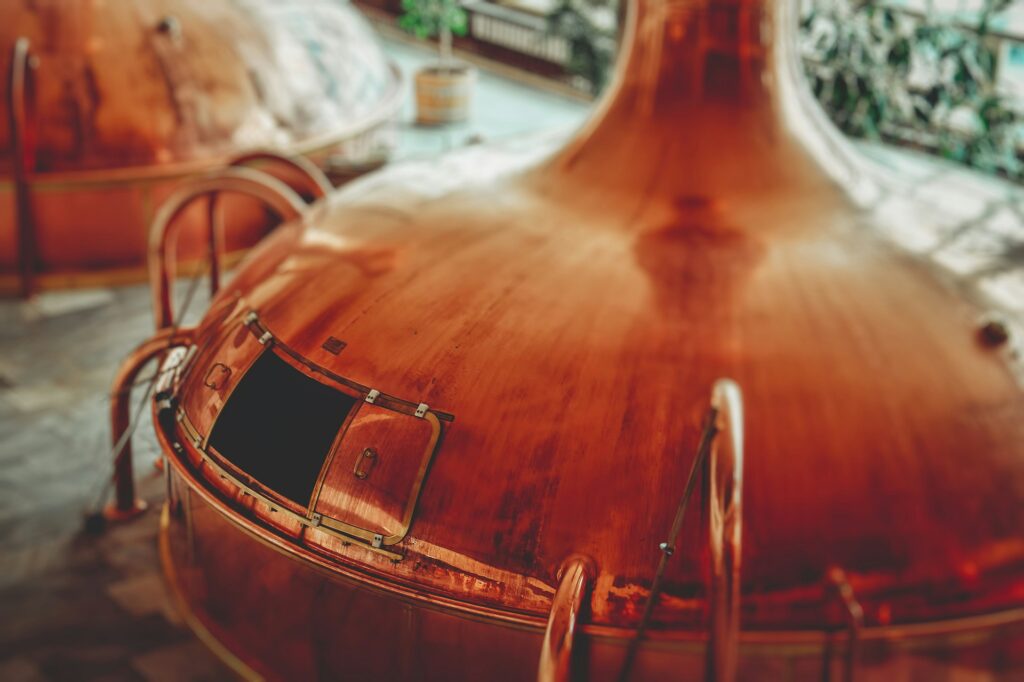Commercial Craft Beer Brewing Equipment Pros Use
Many of us who are fond of specialty beers have had the fantasy of buying a bunch of brewery equipment, pretend like we’re an experienced brewer, and create high quality beer. We both know it’ a lot harder than that.
Before being placed in the driver’s seat, it may be a good idea to hear about how the professionals do it and hear about the broader industry in which they brew before we plan our first brew session. In this article, we explore the key commercial craft beer brewing equipment favored by professionals, highlighting trends in automation, sustainability, and market dynamics shaping the brewing landscape today.
Industry Overview
The craft beer industry has seen remarkable growth globally over the past decade, with the global craft beer market share rising from 6.4% in 2010 to over 13.5% in 2022. However, the U.S. market has recently experienced a slight decline, with a 4% drop in production in 2024 marking its third consecutive year of negative growth.
This shift is largely attributed to market saturation and increased competition among craft brewers. Despite these challenges, professional brewers continue to innovate by adopting advanced commercial brewing equipment that enhances efficiency, quality, and sustainability. Understanding the tools and technologies that pros rely on can provide valuable insights for brewery owners and home brew enthusiasts alike.
Core Brewing Equipment in Commercial Craft Breweries
At the heart of any craft brewery lies a set of essential brewing vessels and systems designed to handle every stage of beer production. Stainless steel commercial brewing equipment, such as mash tuns, lauter tuns, brew kettles, and conical fermenters, are industry standards due to their durability, sanitary construction, and ease of cleaning. These vessels are often custom-designed or selected to match the brewery’s production scale and style, ensuring optimal control over the brewing process.
For example, mash tuns and lauter tuns facilitate the conversion of grains into fermentable sugars, while brew kettles allow for boiling and hop additions. Conical fermenters enable efficient yeast management and sediment separation, crucial for producing consistent, high-quality beer. Many breweries also invest in brite tanks for carbonation and storage before packaging.
A turnkey solution that integrates these kinds of components into a streamlined system is popular among commercial brewers. Such systems often include control panels that allow brewers to monitor temperature, pressure, and timing parameters in real time, reducing human error and improving batch consistency. These advancements are particularly important as the craft beer market matures and competition intensifies, requiring breweries to maintain high standards while managing costs effectively.
Automation and Software Integration
One of the most transformative trends in commercial craft beer brewing is the integration of automation and software systems into brewing equipment. Modern breweries utilize advanced control panels and software platforms that provide comprehensive oversight of the entire brewing process—from milling grains to fermentation and packaging. A far cry from a brew kettle in your basement.
This technology enables brewers to monitor variables such as temperature, pH, and flow rates with precision, ensuring that each batch meets exact specifications. Automation also reduces labor-intensive tasks, allowing brewers to focus on recipe development and quality control. Furthermore, data logging capabilities help identify inefficiencies and optimize production schedules.
The global commercial beer brewing equipment market was valued at $5.7 billion in 2021 and is expected to grow at a compound annual growth rate (CAGR) of 6.1% through 2030. This growth is driven in part by the increasing adoption of automated brewing systems that improve operational efficiency and product consistency. These innovations are becoming standard in both microbreweries and large-scale operations.
Sustainability and Energy Efficiency in Brewing Equipment
Environmental sustainability is becoming a priority for many craft breweries, prompting investments in energy-efficient and eco-friendly brewing equipment. Breweries are adopting technologies and equipment designs such as closed-loop water recycling systems that minimize water waste during the brewing process. This not only reduces operational costs but also aligns with growing consumer demand for environmentally responsible products.
Energy flexibility is another emerging area of focus. A study of 239 Danish breweries demonstrated that implementing energy flexibility measures could save approximately 1.56% of electricity costs annually while reducing CO2 emissions by about 1,745 tonnes. Such measures include optimizing energy use during peak and off-peak hours and integrating renewable energy sources where possible.
These sustainability efforts are supported by advancements in brewing equipment design, including heating with ultra-low watt density elements and improved insulation for brewing tanks, which reduce energy consumption during mashing and boiling. Commercial breweries adopting these technologies not only lower their carbon footprint but also enhance their market appeal to eco-conscious consumers.
Market Trends and Equipment Demand
Despite the recent decline in U.S. craft beer production, the global craft beer market continues to expand, driving demand for specialized brewing equipment. The microbrewery equipment market, in particular, is projected to grow at a CAGR of 7.19% from 2025 to 2035, reflecting the ongoing interest in smaller-scale, artisanal beer production from micro brewing systems – and not just from large breweries.
However, the U.S. market is experiencing saturation, which has led to increased competition and a slowdown in growth. This environment encourages breweries to differentiate themselves through equipment that enhances product quality and operational efficiency.
Custom brewhouses and modular brewing systems offer flexibility for breweries to experiment with new styles and scale production according to demand. Additionally, turnkey commercial brewing systems that include everything from hot liquor tanks and mash mixers to keg washers and cellar tanks provide comprehensive solutions that reduce setup time and complexity.

For the business owner looking to invest in high-quality equipment, it’s important to consider commercial brewing equipment manufacturers with a proven track record of delivering sanitary, durable, and easy-to-clean systems.
These factors contribute to maintaining product integrity and complying with health and safety regulations.
Choosing the Right Equipment for Your Brewery
Selecting the appropriate commercial brewing equipment for your brewery project depends on several factors, including brewery size, production goals, and budget. For microbreweries, compact systems that integrate multiple functions can save space and reduce initial investment.
Larger breweries may prioritize scalability and automation to handle higher volumes efficiently.
Sanitary construction and ease of cleaning are critical considerations to prevent contamination and ensure consistent beer quality – and create a delicious brew.
Many professional brewers favor stainless steel vessels with sanitary welds and clamp fittings that facilitate quick disassembly and thorough cleaning. Equipment with separate ground-fault circuit interrupter (GFCI) breakers enhances safety during operation.
Innovative features such as ultra-low watt density heating elements improve energy efficiency and reduce heat damage to brewing ingredients. Heat exchangers and steam condensers further optimize thermal management during brewing sessions.
Working with experienced manufacturers who offer custom designs and excellent customer service can help breweries tailor their equipment to specific brewing styles and operational workflows.

Tapping the Market
The commercial craft beer brewing industry is evolving rapidly, driven by technological advancements, sustainability initiatives, and changing market dynamics. Professional brewers rely on high-quality, efficient, and flexible brewing equipment to navigate these challenges and deliver exceptional products.
From stainless steel mash tuns and conical fermenters to automated control systems and energy-saving technologies, the right equipment can significantly impact a brewery’s success. As the global craft beer market continues to grow, investing in modern commercial brewing equipment offers breweries the tools they need to innovate, compete, and thrive in a competitive landscape.
For breweries aiming to stay ahead, embracing these equipment trends and technologies is not just a matter of efficiency – it’s a strategic imperative for sustainable growth and quality excellence.
By being able to craft perfect complete commercial brewing systems, everyone from brew pubs expanding to the experienced home brewer taking their game to the next level – and everything in between – can tap a growing and tasty market.



